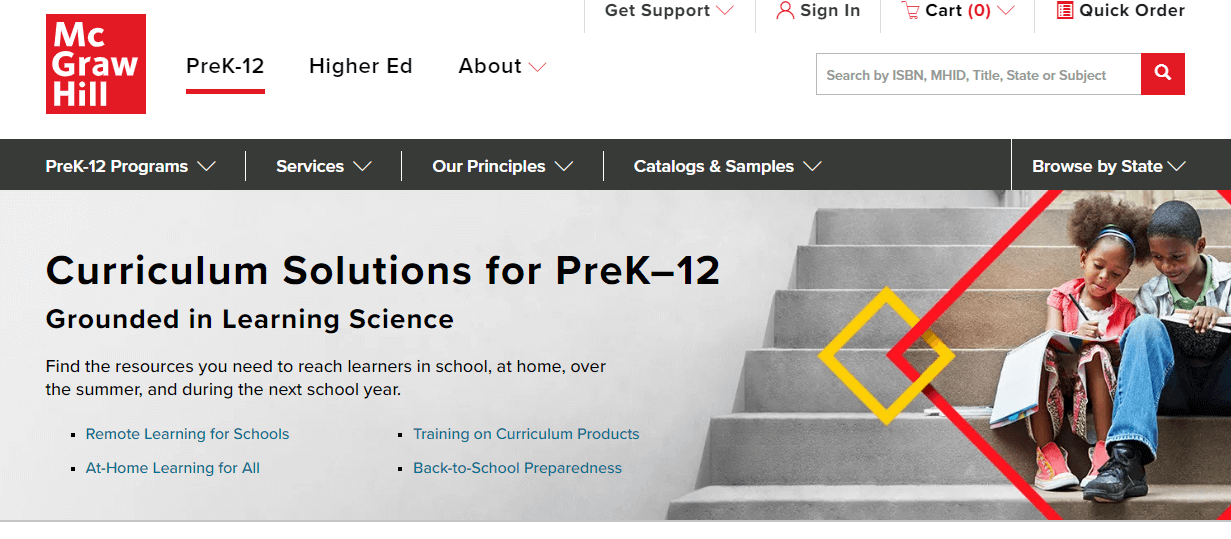Summer is waning and that means school is nearly back in session. If you’re a parent, that means tapping back into your own elementary school education – which goes something like this:
Kid: What’s a synonym?
Me: Uhhh… a spice?
Seriously, who knew helping six-year-olds with their math homework could be so unnecessarily complicated. (Thanks for nothing, Common Core.) And while most of us will never have to find the diameter of a circle again, there is one area of learning that we can still apply today.
That’s right; we’re talking about the scientific method.
Although useful, this post isn’t another list of ways to keep revenue flowing during a downturn. Today, we’re going back to school for a more scientific-based approach to overcoming the current economic slump.

Starting with something every student loves…
A POP QUIZ!
Which of the following companies do you think would fare better during a recession?
- Company A: Reallocated spending; increased marketing investment
- Company B: Pulled back spending; downsized marketing investment
- Company C: Did nothing and the marketing team re-binge watched Yellowstone instead
Did you answer Company A? We hope so.
Although it is very important that we’re up-to-date with the Duttons before Season 5, it is far more beneficial to your business that it keeps investing in marketing during this economic downturn.
To understand why, we recently looked at some of the biggest winners from the 2008 Great Recession to see if their experiences could likewise guide us on how to come out on top after a recession.
But that analysis lacked one very important thing: SCIENCE!
How a Scientific Study Shows We Can Beat a Recession
While researching the best ways to help our clients come out ahead during a recession, we came across a very interesting study from Cornell University. You might have seen it. But on the off chance you didn’t happen to catch volume 56 of Cornell Hospitality Quarterly, it’s well worth the read.
The study looked into the specifics of why some hotel groups during the 2008 downturn came out financially ahead of others. The question (step 2 of the scientific method if you’re keeping track at home) was whether there was a consistent factor that separated the winners from the losers.
Spoiler: There was.
Aptly titled, Winners and Losers during the Great Recession: The Positive Impact of Marketing Expenditure, this study used the scientific method in all its glory to conclude:
“….firms that ‘invest’ in marketing, especially in tough times, can achieve a payoff via various revenue drivers and will realize gains beyond just the short term.”
There you go. Science has spoken.
It’s an insightful read, filled with fancy performance indicators like “TRevPAR,” some nifty charts, statistical jargon like “coefficient” and “univariate,” as well as lots and lots of citations — all marks of a truly good study. Though in case you don’t have time to scan through it, here are some of the key takeaways:
- Losers heavily discounted prices; winners did not
- Losers reduced expenses across the board, including marketing
- Winners specifically increased advertising and marketing expenses
- During the recession low point, marketing was a primary driver of revenue for winners
In summary, these findings reaffirm what we’ve previously seen, which is that companies that continue to invest in marketing throughout a recession come out very, very well.
But understandably, you might be wondering how a study about the hotel industry in 2008 holds any bearing on your business in 2022.
You might be thinking that these findings are good and well, but there’s a big difference between a financial recession years ago caused by faulty subprime mortgages and the shifting economic landscape we see right now.
You might be asking yourself, why does this matter to my business?
Why This Matters to Your Business
The first thing to note is that all economic recessions, no matter how they originate, share similar patterns and characteristics. This means the successful behavior of brands during one recession will apply to future ones. Some of these behaviors include:
- Pre-emptive cost restructuring
- Balance sheet discipline
- Proactive mergers and acquisitions
- Targeting recession-proof audiences
- Pivoting product development and messaging
They also include, as the study concludes, aggressive commercial growth strategies like investing in marketing during a recession.
Also telling, is that during the Great Recession, hotels were one of the hardest hit. Yet of those, the ones that invested in marketing fared much better than their competitors that did not. While there is little insight to be gleaned from the performance of truly recession-proof brands during a downturn (like those in healthcare or food and beverage), far more insightful is how those businesses hardest hit cope – like hotels.
In fact, there are few industries less recession-proof than hospitality. So if hotels could beat their competitors by doubling down on marketing during a recession, it’s worth taking note.
Of course, no business would want to base its choice to boost marketing on one Cornell study, as impressive as that study might be.

But it’s not a stretch to think hotels are the only ones who fare better during a recession thanks to marketing.
So let’s test that hypothesis with some…
Other Examples of Recession Proofing via Marketing

Match.com was able to increase revenue by 25% and boost active subscribers by 30% during the 2008 recession. How? According to then CEO Greg Blatt, by investing heavily in two key areas: product development and marketing.

Likewise, back in 2009, Amazon, not quite the behemoth it is today, grew its sales by 28% via product innovation, specifically the Kindle, and aggressive cross-promotional campaigns.
But the Great Recession isn’t our only benchmark.

Way back during the 1930’s Great Depression, Kelloggs doubled its advertising spend and invested heavily in a state-of-the-art technology known as radio to promote it’s latest creation, Rice Krispies. As a result, they grew profits by 30% and outshined competitor Post, who significantly cut back marketing during the same time. And the rest is Snap, Crackle, Pop history.
 During the 80s, McGraw-Hill Research analyzed 600 companies and found that “those firms that had maintained or increased their advertising during the recession …. boasted an average sales growth of 275% over the next five years.” Comparatively, companies who cut advertising only saw a recovery growth of 19%.
During the 80s, McGraw-Hill Research analyzed 600 companies and found that “those firms that had maintained or increased their advertising during the recession …. boasted an average sales growth of 275% over the next five years.” Comparatively, companies who cut advertising only saw a recovery growth of 19%.

When a recession hit the early 90s, McDonald’s decided to play it safe and cut its ad budget. Smelling fast food blood, Pizza Hut, and Taco Bell ramped theirs up and, as a result, grew sales by 61% and 40%, respectively. On the flip side, McDonald’s saw a 28% drop. Yo quiero Marketing.

In interviewing brick-and-mortar retailers about their recession performance, the management consulting firm Mckinsey & Company found that “all the resilient players we spoke to maintained or increased their marketing spending during the downturn.” In particular, when T.J. Maxx saw its core audience affected, the department store increased advertising spend by 15% so they could reach a new consumer base.
We think that data speaks for itself.
Summary and Conclusion
As the adage goes, “When times are good you should advertise. When times are bad, you MUST advertise.”
We’re not sure who came up with that, but they definitely know their stuff. Based on the findings above it’s hard to argue with that sentiment.
If you’re looking for the ammo to overcome a recession, look no further than your marketing efforts. By continuing to invest in marketing during economic slumps and uncertainty, you’ll come out a winner.
So to recap what we’ve learned today:
- We all need to brush up on our elementary school studies
- Season 5 of Yellowstone is going to be epic
- Cornell puts out some pretty nifty studies
- Winning businesses invest in marketing during recessions
- Science rules!
We can’t guarantee knowing all this will help you figure out how to help your five-year-old with their trigonometry homework, but it will help your business thrive in a downturn.
Because you know what they say about knowing….

The other half?
Acting on that knowledge.
If you need help with marketing, we’re providing a free opportunity analysis to help brands find their best avenues for growth, no matter what the economic climate. Together we’ll find where investing your marketing budget will benefit your business the most, and the best ways to implement. This includes figuring out which of your competitors are decreasing or increasing their ad spend. That way, just like the companies above, you can grab some of that sweet, sweet market share.


